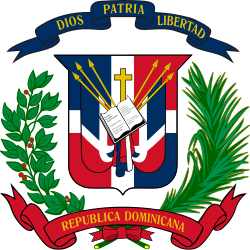 |
|---|
Constitutional Assembly elections were held in the Dominican Republic on 13 November 1955. [1] The role of the Assembly was to review and amend certain articles of the constitution. [2]
 |
|---|
Constitutional Assembly elections were held in the Dominican Republic on 13 November 1955. [1] The role of the Assembly was to review and amend certain articles of the constitution. [2]